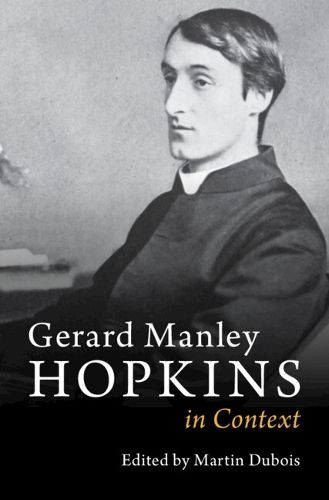Readings Newsletter
Become a Readings Member to make your shopping experience even easier.
Sign in or sign up for free!
You’re not far away from qualifying for FREE standard shipping within Australia
You’ve qualified for FREE standard shipping within Australia
The cart is loading…






Gerard Manley Hopkins was one of the most innovative British poets of the nineteenth century. This book provides an authoritative guide to the ideas and influences shaping Hopkins's life and writing. Consisting of thirty-eight essays by leading scholars, the book covers topics that have long attracted scholarly attention while also responding to recent critical trends. It considers Hopkins's formal innovations alongside his theological and philosophical ideas. Chapters examine his Victorian aesthetic and cultural contexts as well as the significance of his ecological imagination and response to environmental degradation. Hopkins's poetry was not widely known until the 1930s, and the book closes by discussing the distinctive nature of its reception and influence. Informed by original research but accessibly written, the essays enable a fresh engagement with the originality of Hopkins's writing and thought.
$9.00 standard shipping within Australia
FREE standard shipping within Australia for orders over $100.00
Express & International shipping calculated at checkout
Gerard Manley Hopkins was one of the most innovative British poets of the nineteenth century. This book provides an authoritative guide to the ideas and influences shaping Hopkins's life and writing. Consisting of thirty-eight essays by leading scholars, the book covers topics that have long attracted scholarly attention while also responding to recent critical trends. It considers Hopkins's formal innovations alongside his theological and philosophical ideas. Chapters examine his Victorian aesthetic and cultural contexts as well as the significance of his ecological imagination and response to environmental degradation. Hopkins's poetry was not widely known until the 1930s, and the book closes by discussing the distinctive nature of its reception and influence. Informed by original research but accessibly written, the essays enable a fresh engagement with the originality of Hopkins's writing and thought.